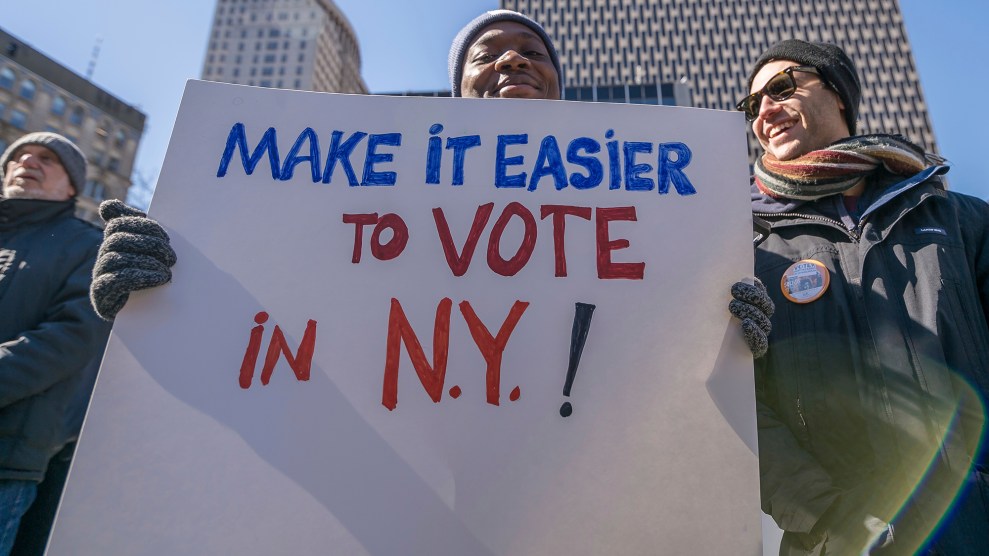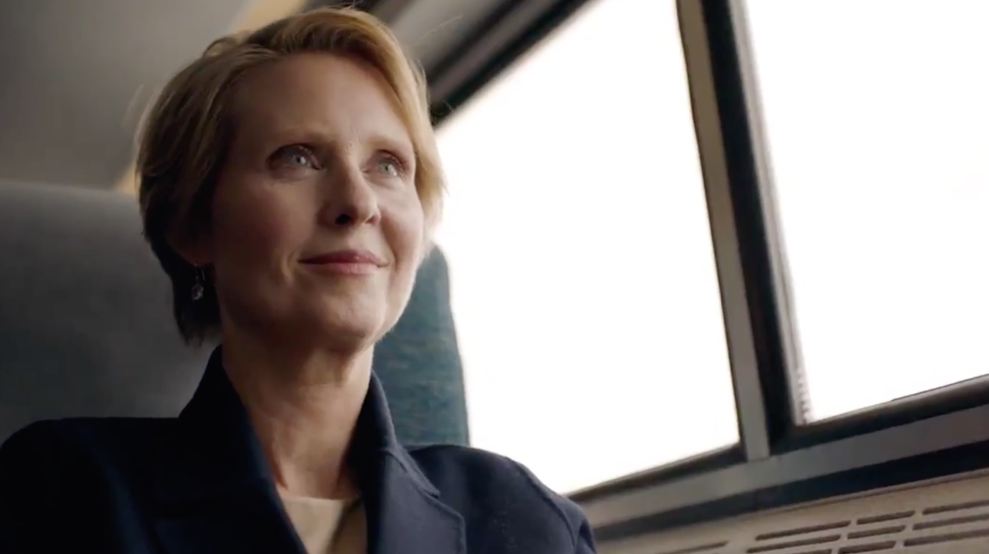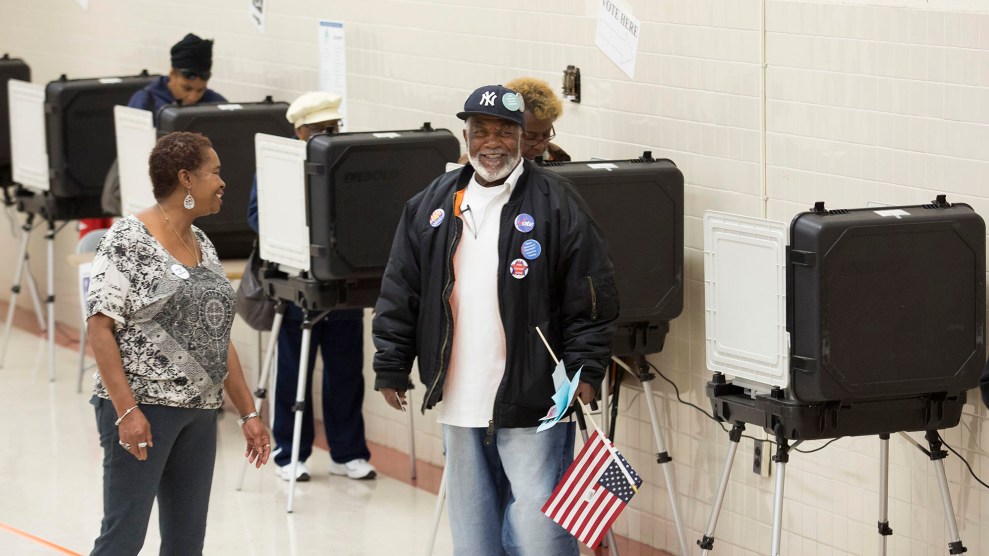
A demonstrator holds a sign during a rally to demand voting reform in New York on March 18, 2018. Albin Lohr-Jones/Sipa USA/AP
Andrew Cuomo, New York’s Democratic governor, announced on Wednesday that he plans to restore voting rights to ex-felons on parole through an executive order. The move could enfranchise tens of thousands of New Yorkers.
“In this state, when you’re released from prison and you’re on parole, you still don’t have the right to vote,” Cuomo said before a meeting of Al Sharpton’s National Action Network. “Now how can that be? You did your time. You paid your debt. You’re released, but you still don’t have a right to vote.”
According to the state’s own figures, roughly 36,000 New Yorkers can’t vote because they’re on parole. Almost half, or 48 percent of those disenfranchised, are African Americans. Nationwide, more than 6 million Americans can’t vote because of felon disenfranchisement laws. Florida is considering a ballot initiative in 2018 to restore voting rights to 1.5 million ex-felons.
Other governors have tried and failed to restore voting rights to ex-felons through executive orders. Former Virginia Gov. Terry McAuliffe issued a similar executive order in 2016 but was blocked by the state’s Supreme Court. Instead, he restored voting rights to 168,000 ex-felons on a case-by-case basis.
Under Cuomo’s administration, New York has done little to reform its restrictive voting laws. Unlike many Democratic-leaning states, New York has no early voting, Election Day registration, or automatic voter registration. New York’s Legislature recently stripped funds to establish early voting from its last budget.
Actress and activist Cynthia Nixon is mounting a progressive challenge to Cuomo, seeking New York’s Democratic gubernatorial nomination. She’s spoken out against Cuomo’s record on early voting.
.@NYGovCuomo has failed New Yorkers by not including early voting in the budget. #nygov pic.twitter.com/YDlt5HO22O
— New York for the Many (@NY4theMany) March 28, 2018








